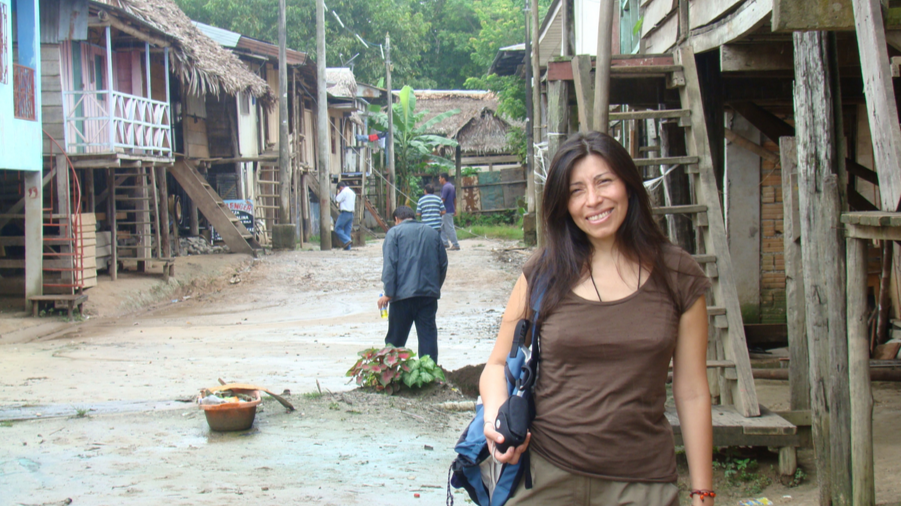
Dr. Claudia Paredes-Esquivel obtained a bachelor degree in Biological Sciences at the University of San Marcos (UNMSM) in Lima, Peru in 1996. In Peru, she worked in industry (1997-2000), for the Ministry of Health (2000-2002) and from 2002 to 2004 as an assistant lecturer at the Faculty of Biological Sciences at the National University of San Marcos. In 2004, she joined the Liverpool School of Tropical Medicine (LSTM) as a PhD fellow under the supervision of Professor Harold Townson. She currently works as a lecturer at the University of the Balearic Islands (UIB) in Spain. She is interested in using molecular-based techniques to understand the taxonomy, phylogenetic relationships and evolution of parasites and their vectors so to improve existing control strategies.
Why did you choose to study at LSTM?
Since I was an undergraduate student, it was very clear for me that wanted to work in parasites and vector-borne diseases, which have a strong impact in Peruvian people’s lives. I applied to several academic institutions related to this field, but when Harold Townson gave me the chance to start a PhD at LSTM, I could not believe I was going to have the privilege of working in a place that had been so important in the history of Tropical Medicine. As an assistant lecturer of Parasitology in Peru, we used to teach students about LSTM's role in the discovery of how malaria is transmitted.
How do you feel your time here shaped your future?
LSTM and Liverpool shaped my future in many aspects of my life. As a scientist, I came to undersatand that sharing knowledge and good criticism among scientists was a key for good scientific development. I gained advanced molecular techniques that I later used to study other vectors and parasites which are now my main field of research. I learnt to be speak and write in English properly! For a Spanish speaker this opens many doors. I was lucky to have Harold Townson as a supervisor, from whom taught me about his ethics and philosophy of science. I used to collaborate in the Dagnall Lab as a demonstrator and gain a greater understanding of parasite diagnosis. This gave me the chance to be a Parasitology Lecturer here in Mallorca. At personal level, I met in Liverpool some of the most important people of my life, not only friends but also my husband.
What are you most proud of among your achievements?
As a LSTM student, I worked in the molecular phylogenetics of malaria vectors in South East Asia, our study lay the groundwork for the discovery of new species with different importance as vectors in Thailand and Indonesia. As a lecturer in the Balearic Islands we study the use of malaria control strategies to control dengue vectors in the Peruvian Amazon. This introduced new vector control strategies for dengue in my country. Recently, we started some projects on the study of zoonotic parasites here in the Balearics and we detected the presence of Angiostrongylus cantonensis. This parasite is the main etiological agent of eosinophilic meningitis humans. This is one of the first reports in Europe and a strong indication that the world is changing rapidly.
What advice would you give to our current students?
To work hard and learn from LSTM scientists and do not be afraid to ask. Your time here is invaluable and you are very lucky to be part of an institution like LSTM, which concentrates leading experts in tropical medicine. Get to know each other. In a world where differences are highlighted among people, there is need for spaces like LSTM, where you find yourself sharing a cup of tea with people from different cultures, religions and personal histories. After some laughs you will realise we are not as different as the world tell us we are.